The opioid epidemic sweeping the United States has taken a devastating toll on communities throughout the country. However, some areas like Memphis, Tennessee have seen some of the worst effects of the crisis.
As a whole, Tennessee ranks second in overall totals for prescriptions for painkillers, outpaced only by Alabama. In fact, there are currently more active prescriptions for opioids in the state of Tennessee than the total number of people who reside there.
This staggering statistic is the result of a multifaceted problem.
For too long, efforts to combat the dangerous trend of prescription opioid abuse have been focused on outreach to patients. But it has become increasingly clear that doctors and other stakeholders need to be targeted as well to help curb rates of painkiller abuse. Medical professionals need education or re-education on the topic, as well as tools to help them prescribe painkillers safely, and learn ways of identifying drug-seeking behaviors in their patients.
The Problem of Doctor Shopping
Like many other states, Tennessee has created a database to assist physicians in safe prescribing practices, allowing them to check to see what other prescriptions any given patient has at one time. It is hoped that this database will halt a practice known as “doctor shopping” in which patients seek prescriptions from multiple doctors at the same time with the intent of acquiring larger quantities of substances to abuse.
Additionally, public health organizations must ramp up their outreach efforts to communicate the dire state of the opioid crisis in Tennessee. Last year in places like Shelby County and across the United States, more people lost their lives to opioid overdose than from car accidents, a fact that demonstrates the severity of the issue.
In Search of Solutions
While the rates of opioid abuse in Tennessee are still incredibly high, it appears that efforts to curb the overprescribing of these drugs are working because new data suggests that the overall number of prescriptions is beginning to decrease.
This fact is providing hope that perhaps fewer Tennesseans will become mired in the dangerous cycle of addiction the future, and that there is greater awareness of the issue both for patients and physicians.
Additionally, there are more options for treatment for chemical dependence in Tennessee than ever before. And while there is still more work to done when it comes to increasing access to care, help is available for Tennesseans who have succumbed to an opioid addiction.
If you or someone you care about has become dependent on prescription painkillers or other substances of abuse, do not hesitate to seek support. Help is available, and can be found through a quality treatment center that offers programming specifically aimed at helping individuals overcome opioid addiction in Tennessee.





